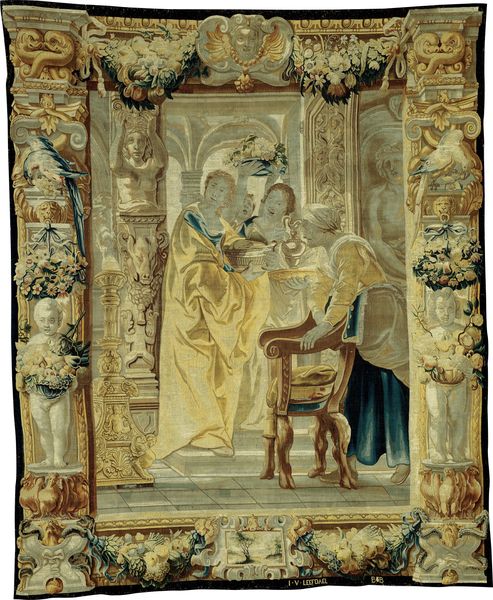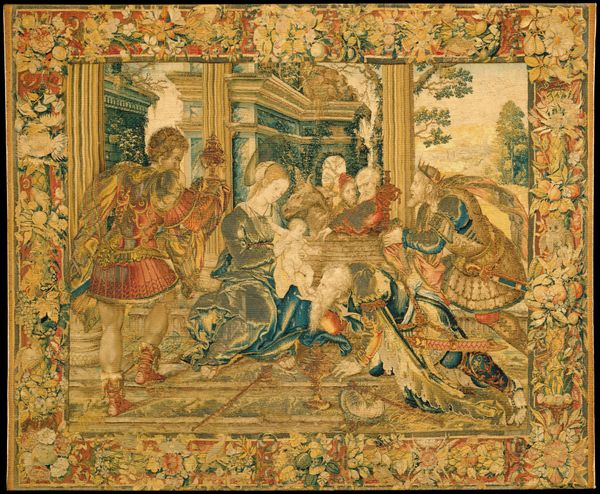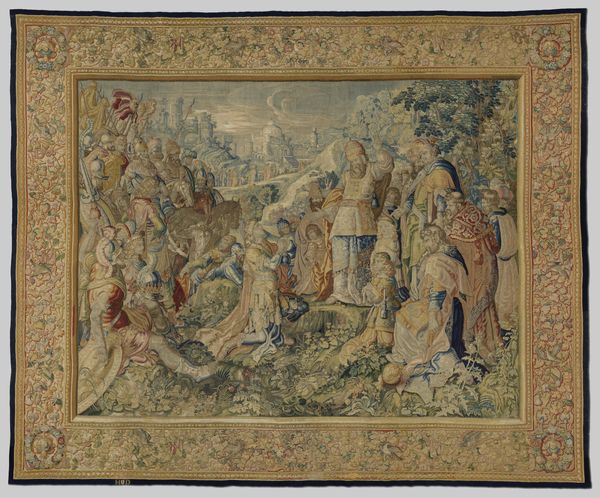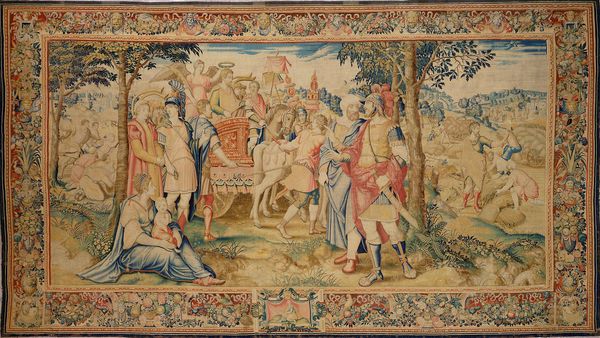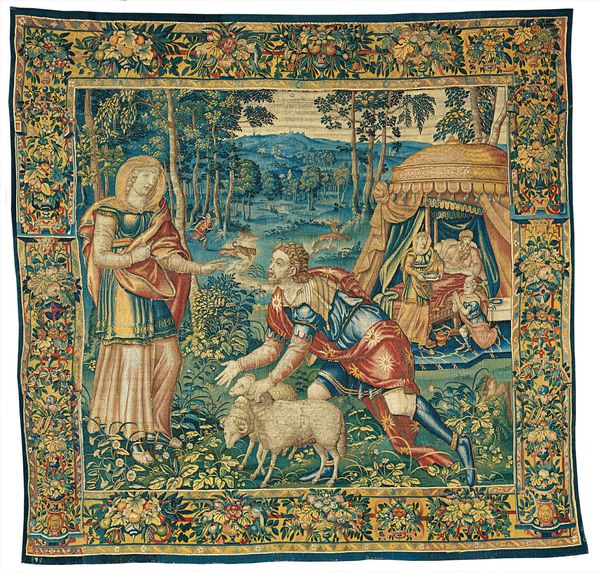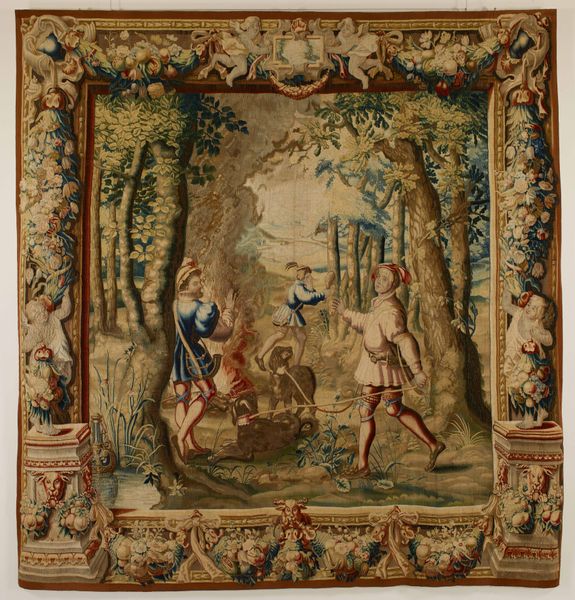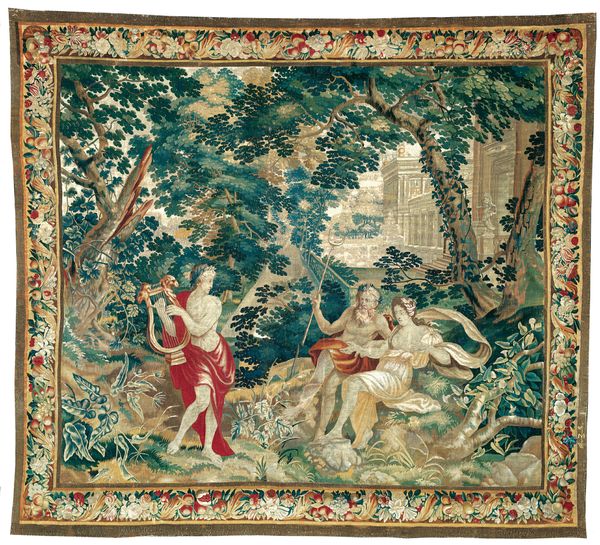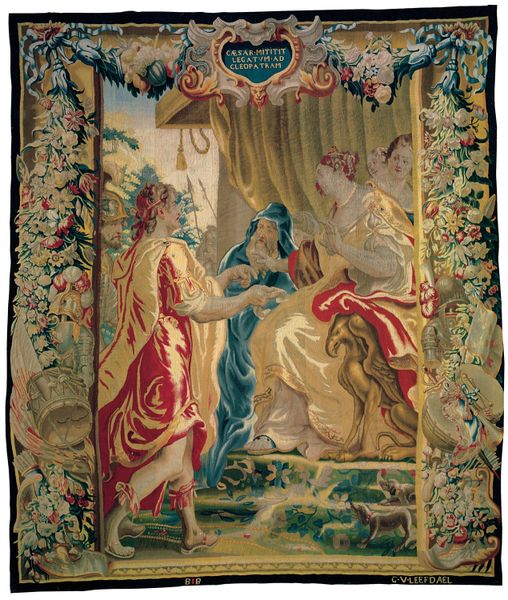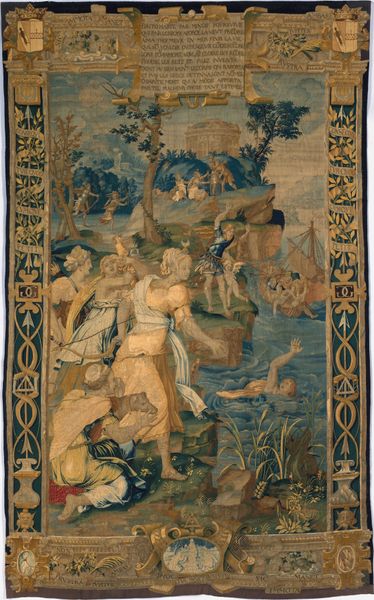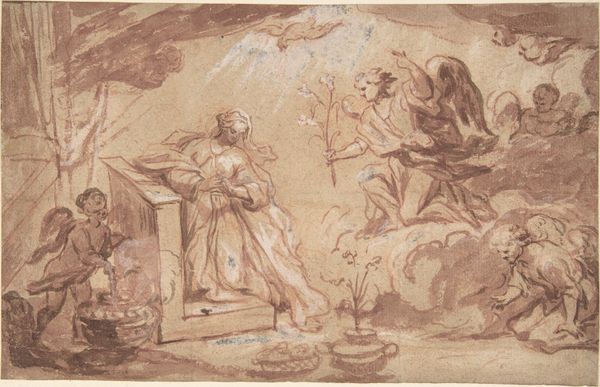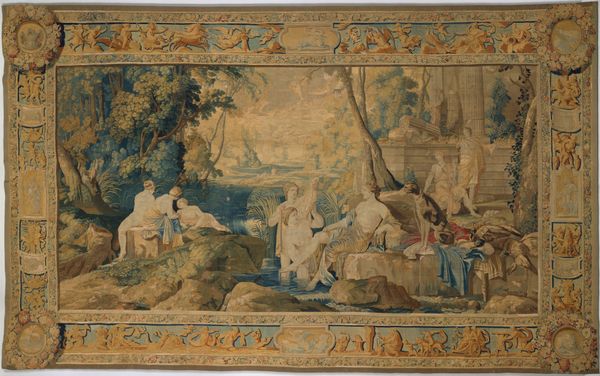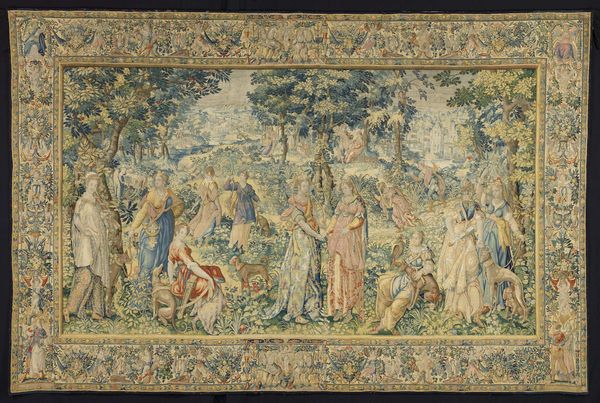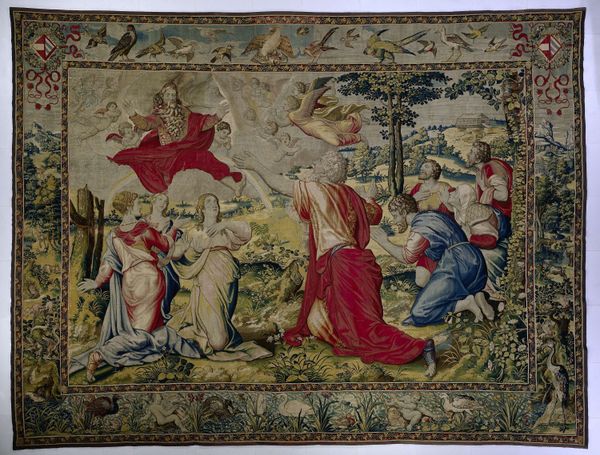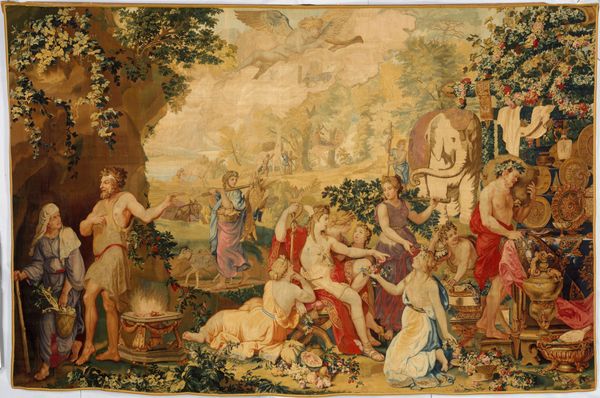
weaving, textile
#
narrative-art
#
weaving
#
landscape
#
textile
#
mannerism
#
figuration
#
oil painting
Dimensions: height 175.5 cm, width 548.0 cm
Copyright: Rijks Museum: Open Domain
This tapestry, titled "Elia en de engel", was woven in the 16th century, likely in the Netherlands, by Willem Andriesz. de Raet, and it depicts the story of Elijah and the angel. Biblical scenes like this were common in tapestries, serving a didactic purpose in a largely illiterate society. The detailed imagery, rich with symbolism, would have resonated with contemporary viewers familiar with religious narratives. The tapestry also reflects the social and economic structures of its time. Commissioned by wealthy patrons, tapestries like this adorned the walls of castles, signaling status and power. The intricate designs and costly materials underscored the commissioner's affluence. Understanding this tapestry requires us to consider the cultural milieu in which it was made. Research into contemporary religious beliefs, social hierarchies, and economic systems can illuminate its deeper meaning. The tapestry's artistry and its role as a social marker intertwine, revealing much about the society that produced it.
Comments
No comments
Be the first to comment and join the conversation on the ultimate creative platform.
